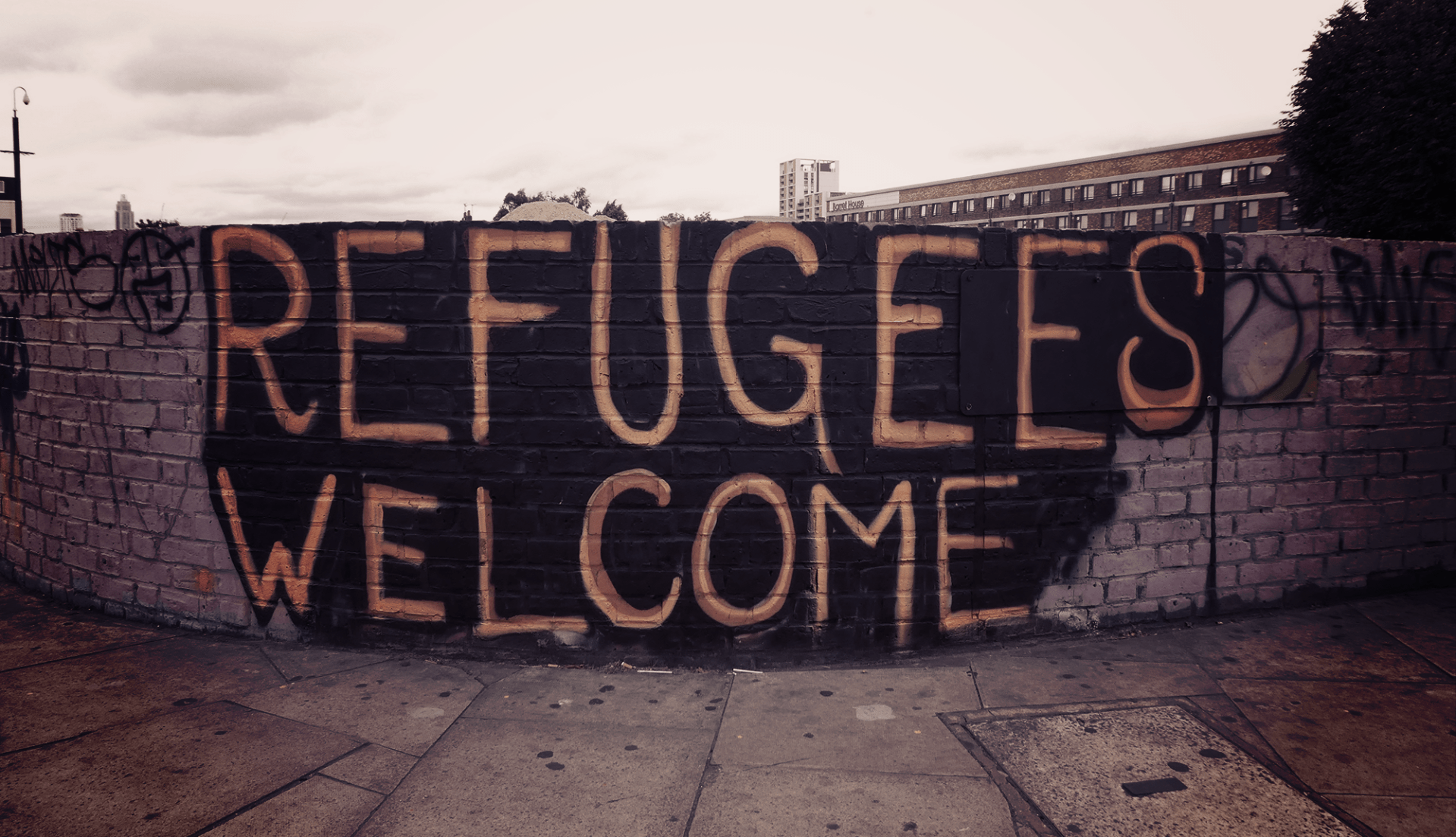The biggest challenges refugees face today are not immediate or obvious. Escaping danger in their home countries is just the beginning of their journey to rebuild their lives. Finding a job, learning a new financial system, picking a bank, getting a credit card — these are all necessary yet challenging steps to establishing permanent residency, and each contingent on the other. Renting an apartment depends on income and a credit score, yet finding a job to earn money hinges on having proper documentation and a bank account to deposit pay into. Refugees arrive on American soil optimistic about their future, but often lack the proper support to make well-informed decisions on key items that will impact their lives, especially as regards the convoluted financial and banking systems in the U.S.
On Sunday, October 1, six members of Fueled volunteered 12 hours to the Refugee Hack Summit in New York City. The tech community showed up ready to develop and document research, strategies, and prototypes for products or scalable services that could help integrate refugees into American communities.

Coordinated by Hack Summit Labs and hosted by Spotify, the hackathon was a welcome opportunity to turn our skills to a new client, so to speak. Refugees face many obstacles during relocation, and the most cumbersome challenges are not obvious to those born here or those that have been here for some time. While there are many organizations helping refugees arrive and settle in the U.S., these organizations are faced with finite resources and an overwhelming number of people in need.
The Fueled team, a pop-up agency that went by The Approvers for the day, focused on helping refugees understand the complex American financial system, develop financial literacy, and begin the process of establishing credit — something that is often overlooked but crucial to anyone starting a business, owning a car, or simply supporting a family in the U.S.

The Approvers began by researching a refugee’s typical journey from their home country to the U.S. We were able to speak with five refugees who shared their unique story and the pain points felt during their first few weeks in America. Many refugees first encounter the need for credit in the middle of applying for an apartment, wireless contract or bank loan.
We found that each refugee shared the same resources for gaining financial and credit knowledge: a relative already established in the U.S. (if they had any) or a Google search. The lack of clear, centralized, coherent and relatable information for refugees to navigate a complex financial system was a big opportunity for the Fueled team to bring their expertise to a widespread problem.

Once we identified this pain point within the larger credit and financial literacy problem, the team went to work to create a solution that was both easy to understand and relatable to their situation. What came out of this process was a profile-based repository of information tailored to each refugee’s experience.
Since most refugees are able to access the internet shortly after their arrival, The Approvers created a web-based platform to refugees navigate the overwhelming amount of information based on their specific profile. For example, a student coming to the U.S. has different credit-based needs than that of a single mother supporting a family. By having refugees create a user profile, we are able to curate and present information that is relevant and actionable based on their specific situation.

Our task was to:
- educate refugees on the importance of building and maintaining positive credit
- convince lenders to lend to refugees
- provide refugees with additional opportunities to build credit
And the web platform arguably addresses those asks, but in the end, the biggest challenge was finding solutions to the structural biases refugees face. We realized that we need to create a safer, warmer environment for the newest Americans, who are far from their former home.

The deliverables created at the Refugee Hack Summit are not a golden solution to all the problems refugees face, but do lay a foundation for strategic ways to address certain challenges. Hack Summit encourages teams to create solutions that live and breathe well after the hackathon ends. Each team came forward with products that will be vital in empowering the existing refugee resettlement organizations, and allow them to better support those in need. For our part, spending 12 hours addressing the immense problems faced by a vast group of people broadened our understanding of the issue, and gave us a valuable opportunity to really “think big,” in a sense that eclipses the tech world and our roles as software designers and developers.
